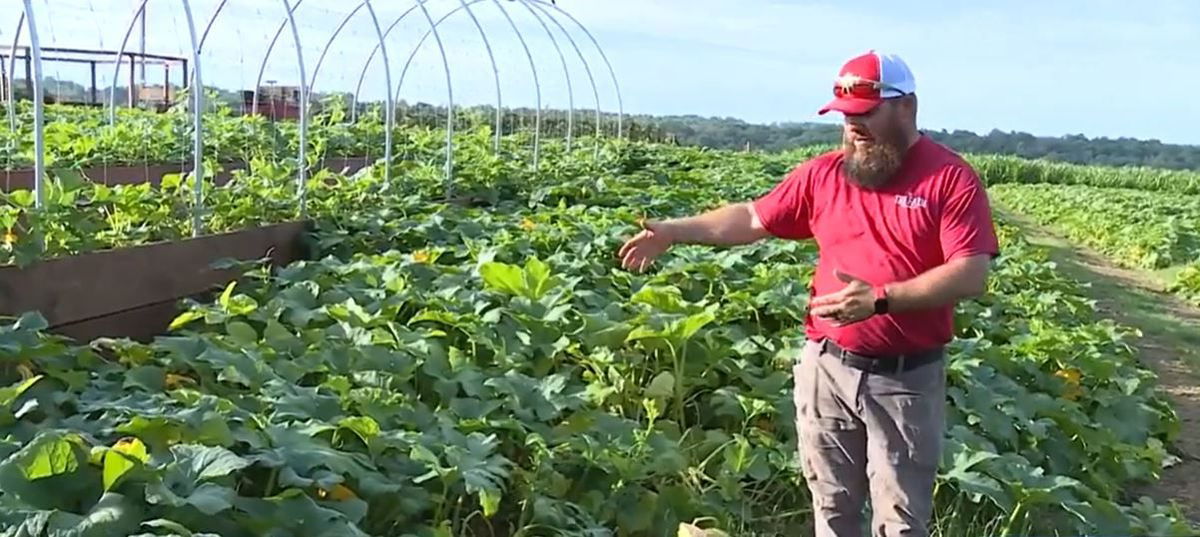North Carolina pumpkin season hit hard as farmers recover from extreme summer weather

North Carolina pumpkin season was hit hard as farmer
Click here for updates on this story
DOBSON, North Carolina (WXII) — As we head into autumn, fresh produce like apples and pumpkins are now back in season. From apple picking to pumpkin carving, they are typically the center of some popular fall fun.
But after drought and tropical storms hit the Triad this summer, one Dobson Farmer says these foods may represent some hard financial decisions for his business.
Josh Watson has been working on his farm with his wife for over ten years, after taking over for his father.
Right now, the farm is getting ready for peak apple and pumpkin season. But they tell me after this summer’s extreme weather, they are potentially one more disaster away from their business being in trouble.
Watson says the drought they experienced at the beginning of the summer made it especially difficult to grow produce like pumpkin, and heavy rainfall that hit the state in the latter half of the season caused diseases in crops like strawberries and apples.
“Pumpkins – it started off really dry, which is the worst time for them to be dry. We were having trouble getting them to germinate – and pop out the ground,” he said. “We got into July, and it started raining, and it seems like it don’t wanna quit. The rain, especially this year when you have a mature fruit it makes a lot of disease.”
Watson says they plant 32 acres of pumpkins every year – though he estimates only about 20 acres will be sellable this season. He said this means they expect about a 30% profit loss on their pumpkins.
This issue is causing them to have to make some tough decisions – or potentially suffer the consequences.
“Well, our profit margin is not 30% on pumpkins, so unless the price is high, depending on demand, if anything we’re not gonna make anything on pumpkins,” he said.
Watson says while weather is something farmers in the industry deal with all the time, as a small business in a big market, this season, it is just one more thing, that makes it even harder to compete.
“There’s a lot of loss. And how you recover from that loss is gonna be the challenge,” he said.
One way Watson says people can continue to help is to buy local. He says buying produce from small, local businesses like theirs makes all the difference.
Please note: This content carries a strict local market embargo. If you share the same market as the contributor of this article, you may not use it on any platform.